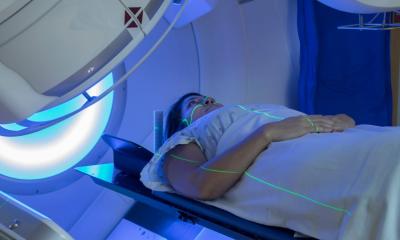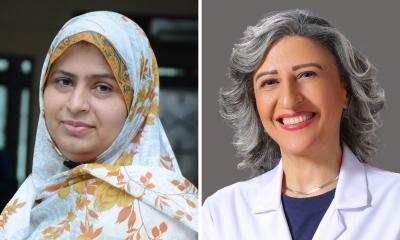Earthquake recovery
Italy’s Emilia Romana, a core area for the biomedical devices industry, has reportedly suffered 40 earthquakes in the past year, the biggest and most recent of about 6-magnitude, Brigitte Dinkloh repors
When the earth shook repeatedly and severely in the area between Modena, Bologna and Ferrara in the Italian region of Emilia Romagna at the end of May, many buildings collapsed and 24 people lost their lives. The effects of the quake also hit local industry hard. Since the 1960s, the centre of the Italian biomedical devices production, the Italian Medical Valley, has been located near the small town of Mirandola. Companies based here are amongst the largest producers of devices for heart-lung and dialysis machines worldwide. Almost all of the 75 companies with a total of more than 5,000 employees were affected by the earthquake and had to interrupt work as a result, moving production to temporary, alternative locations or even containers.
The fact that there was no resulting need across Europe to cancel important heart operations or to stop dialysis patients from having their blood washed is due to the effective crisis management of the affected companies, enabling them to resume production as quickly as possible, and also to the flexibility of the medical facilities. It is still impossible to put the damage caused by the earthquake into exact figures. B. Braun, one of the manufacturers with affected Mirandola production, produces tube systems for dialysis, dialysis kits and concentrates, bags for enteral and parenteral feeding as well as application systems for enteral feeding. The authorities did not allow the removal of goods already produced and of safety stock in the warehouse in Mirandola. The production unit for dialysis concentrates was hardest hit and will have to be completely rebuilt.
B. Braun was able to compensate for the loss of production and delivery in Mirandola by shifting production to some of their other locations in Europe. At the same time they set up alternative warehouse and production facilities in the affected region. Production by the company’s own employees resumed at the alternative location at the beginning of June. ‘We were able to resume full delivery from calendar week 28, the only exception being bags of dialysis concentrates. However, we can deliver concentrates in canisters from our production site in Glandorf as an alternative,’ explained Simone Ries, Head of Marketing Communications at subsidiary B. Braun Avitum AG. Despite all efforts it was not possible to produce the disposable tube systems for a period of about four weeks. This mainly affected customers in Germany in Italy who had to be supplied with competitors’ products. ‘We personally and regularly updated our customers by letter and telephone about the delivery situation and about the current situation in Mirandola via our website. Because of the longstanding customer relationships and the quality of our products we are convinced that customers will continue to put their trust in our products,’ the marketing head explained. The company hoped to take up production in their original facility in Mirandola at the beginning of August. The overall shortfall in revenue and the amount of damage currently cannot be put into exact figures, but luckily none of the 200 employees in Mirandola came to any harm.
Safe stock
Eurosets Srl in Medolla also experienced a loss of production for a whole month. However, the company could fulfil 80-90% of demand because the warehouse stocked supplies of two months’ worth of production. After consultation with the fire brigade, the Medolla warehouse was cleared and the safe stocks were moved to a temporary, hired warehouse near Verona. ‘Initially we resumed production of our tubing sets at the beginning of July, which we hope will run at 100% in August. A few days later we resumed the production of orthopaedic drainage and after a further ten days the production of thoracic drainage. However, the most important thing is to resume production of oxygenator membranes, which is due to be restored at the beginning of August,’ explained Alberto Fiorani, International Sales Manager at Eurosets. For this firm, the earthquake was completely unexpected, as the Po Valley had then not been considered at risks of quakes. ‘In the future, building will be much more earthquake-proof, just like in Japan,’ he pointed out, as he also expressed gratitude to his customers for their understanding and sympathy in this difficult situation.
At Bellco, by the company’s own account among the five biggest manufacturers for extracorporeal blood cleansing systems worldwide, one production hall almost collapsed completely. However, the company also hoped to restore full operations by the 1st August and 1st September respectively. At the Sorin Group, the cardiopulmonary division was hardest hit. Production of their autotransfusion kits was gradually restored and has been fully operational since the beginning of August. Production of oxygenator membranes will be fully restored by 1st September.
Despite the large extent of damage, all companies remain committed to the region as the existing know-how and the tight network of suppliers and producers won’t be easy to find elsewhere. Nobody in the German Heart Centres has officially admitted to any difficulties in obtaining supplies, although insiders confirm these do exist.
The German Heart Institute Berlin reported certain shortages in the supply of membranes for heart-lung machines, and so did the German Heart Centre in Munich. ‘Due to the multitude of equipment from different manufacturers, however, we always had enough heart-lung machines at our disposal, explained Dr Barbara Nickolaus, press officer for the German Heart Institute Berlin. With more than 200 kidney centres across Germany and over 18,000 patients, the Curatorium for Dialysis and Kidney Transplantation e.V. (KfH) is Germany’s largest blood cleansing supplier. According to officials, the Italian earthquake caused no problems with supplies. ‘We have a multiple sourcing strategy, i.e. we have many different suppliers. This prudent supply strategy and the close exchange with all suppliers affected by the earthquake meant that we had no shortcomings supplying our patients,’ confirmed Ilja Stracke, press officer at the KfH.
03.09.2012





